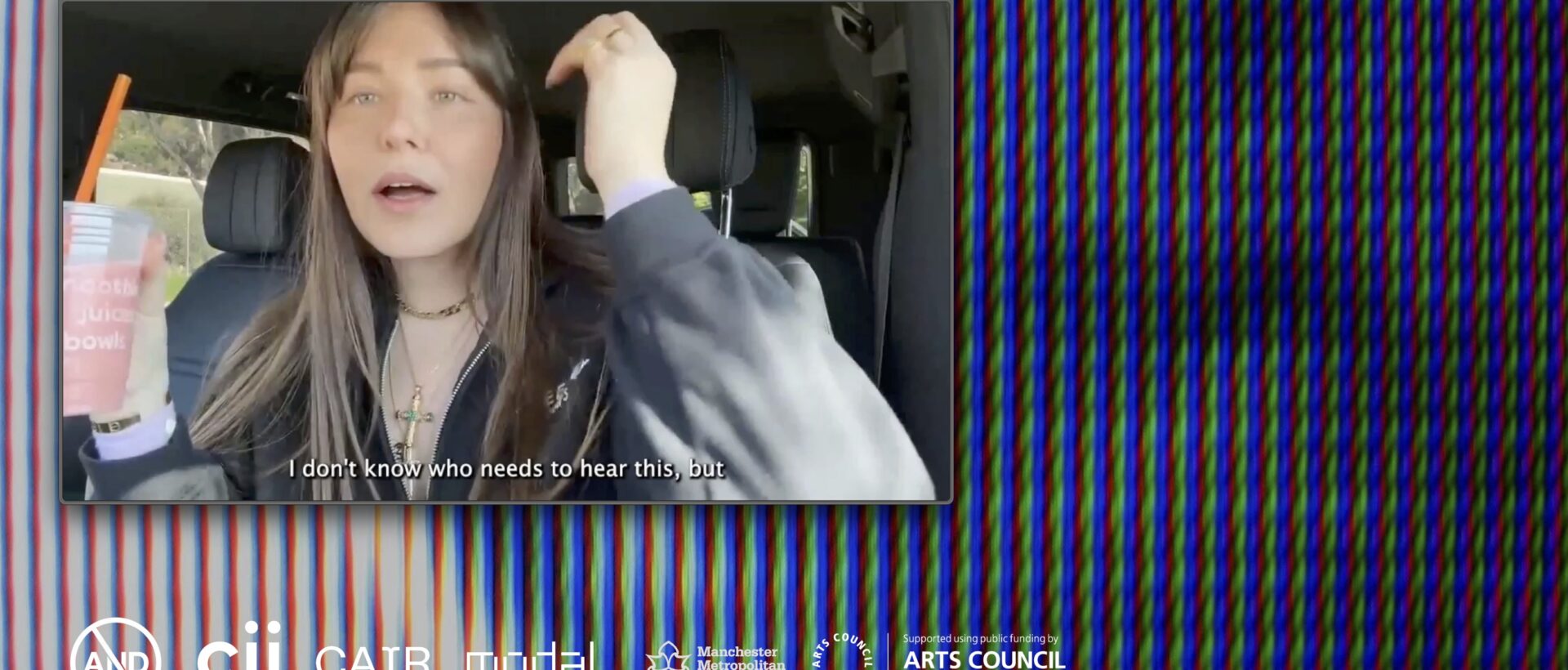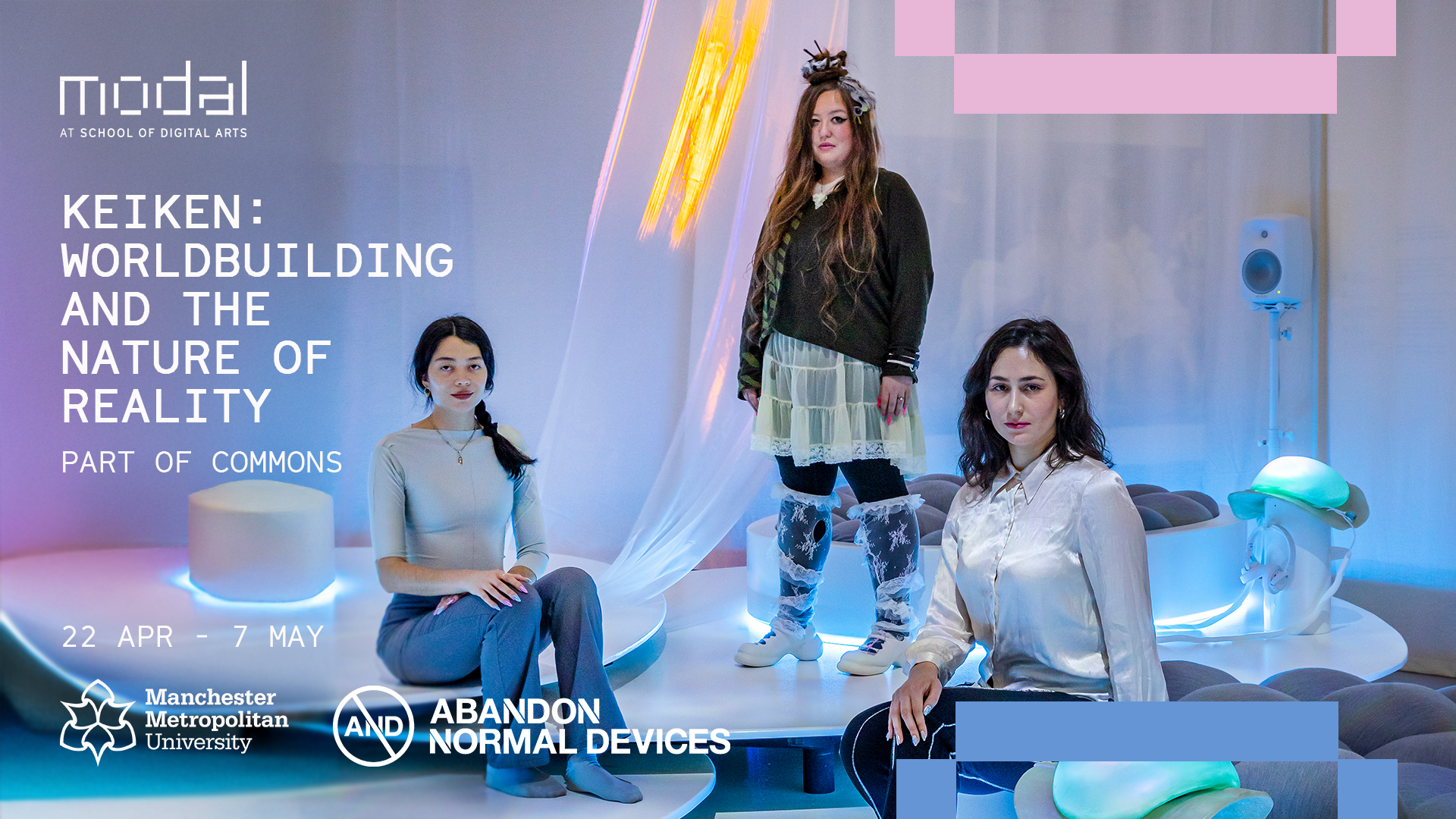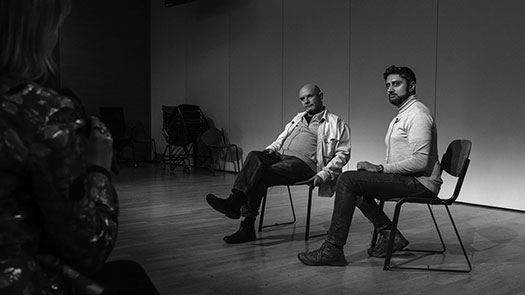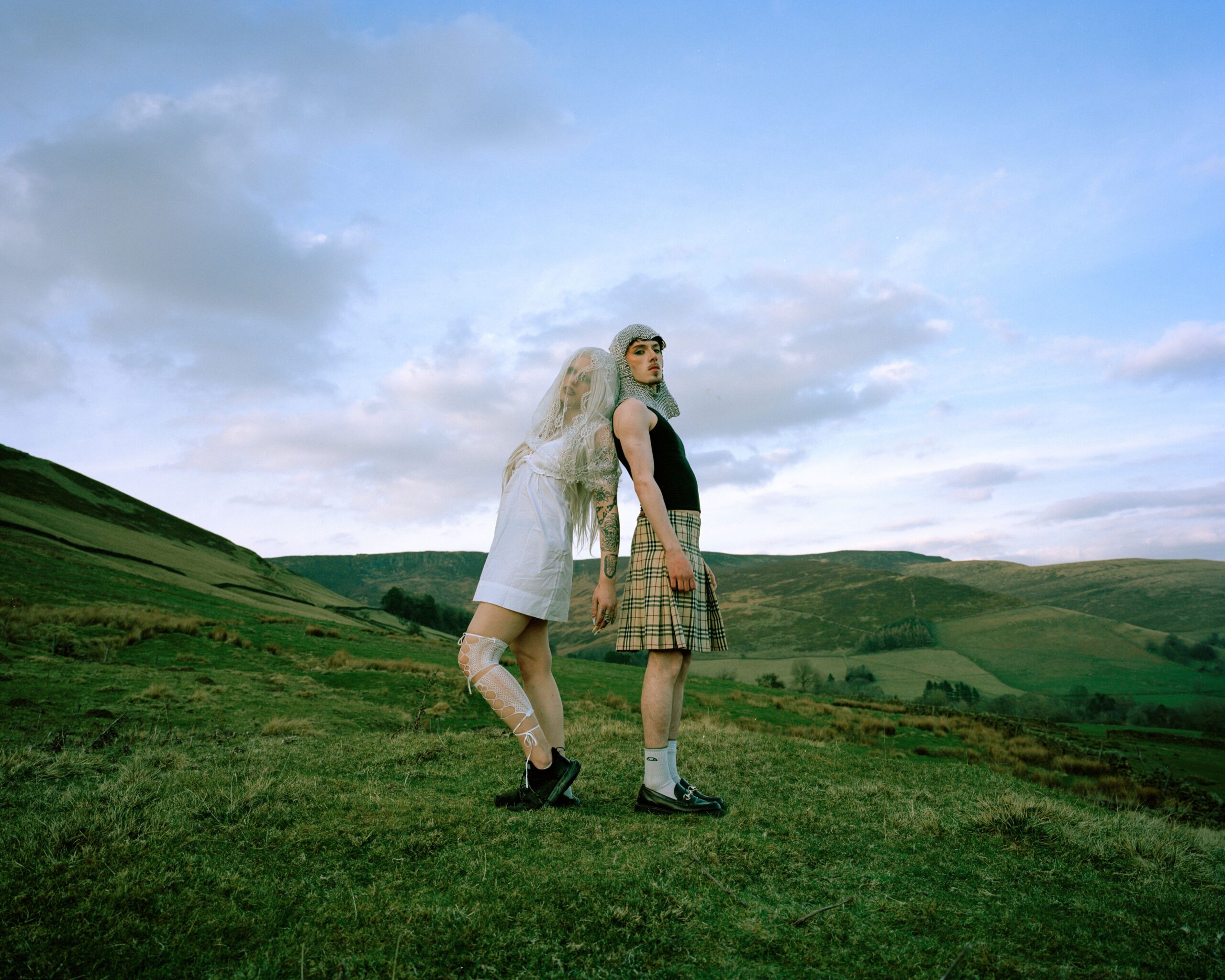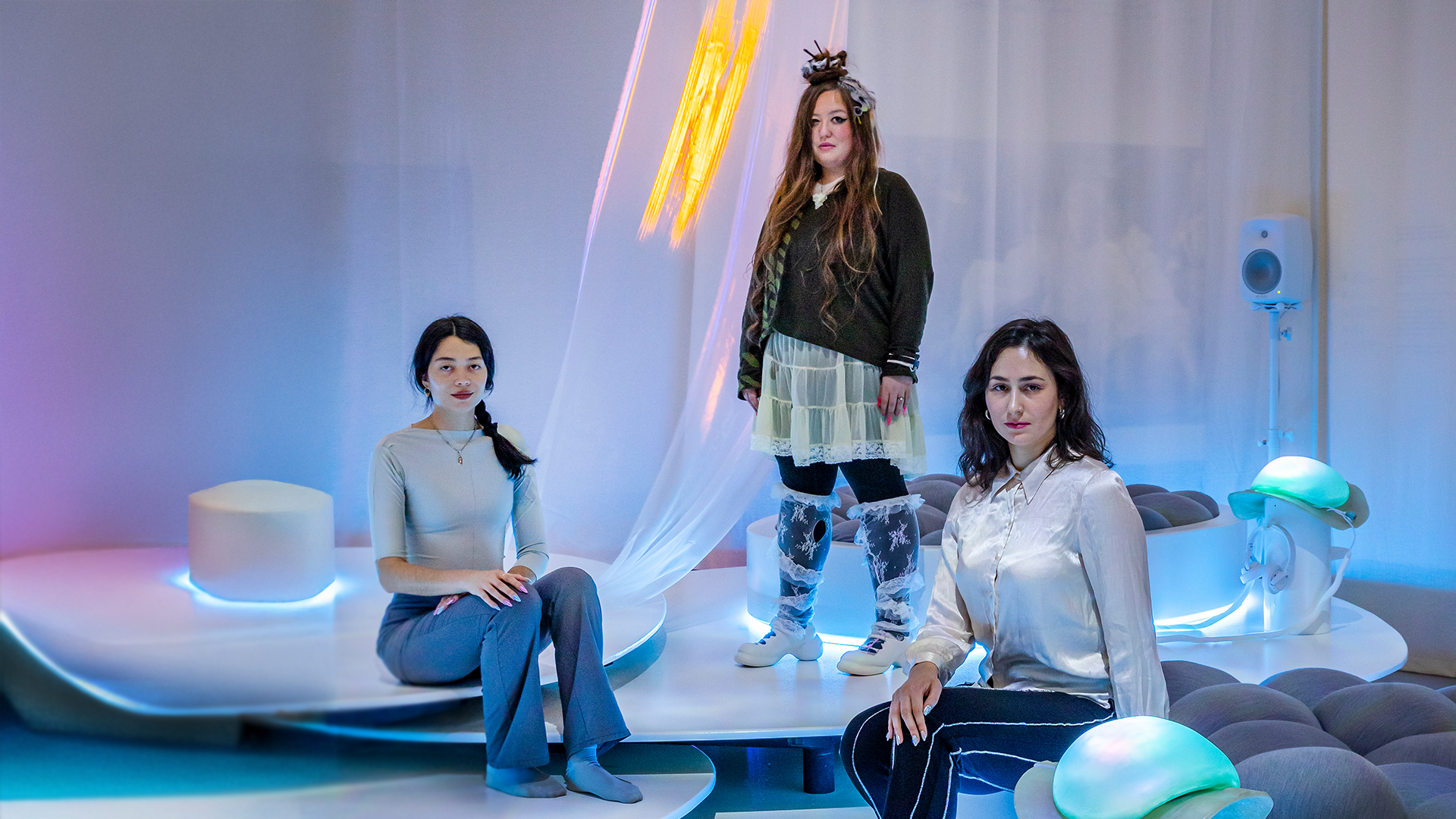Friday 6 December, 6 - 9:00pm
Location: School of Digital Arts (SODA) at Manchester Metropolitan University
Event Type: In-person
Price: £2 - £10 / Free to SODA staff and students
[Part of Deep Focus]
Throughout history, new communication technologies have challenged our ability to discern truth from fiction. From the invention of language to the rise of the internet, each new medium has brought with it new opportunities for manipulation and deception.
As part of our non-fiction narrative lab programme, Deep Focus, Abandon Normal Devices, the Centre for Investigative Journalism (CIJ) and the Center for Artistic Inquiry and Reporting (CAIR), invite you to join us for an evening of short film screenings which explore the deceptively seductive nature of algorithmic recommendations and the online aesthetic methods employed to allure and manipulate our desires or fantasies.
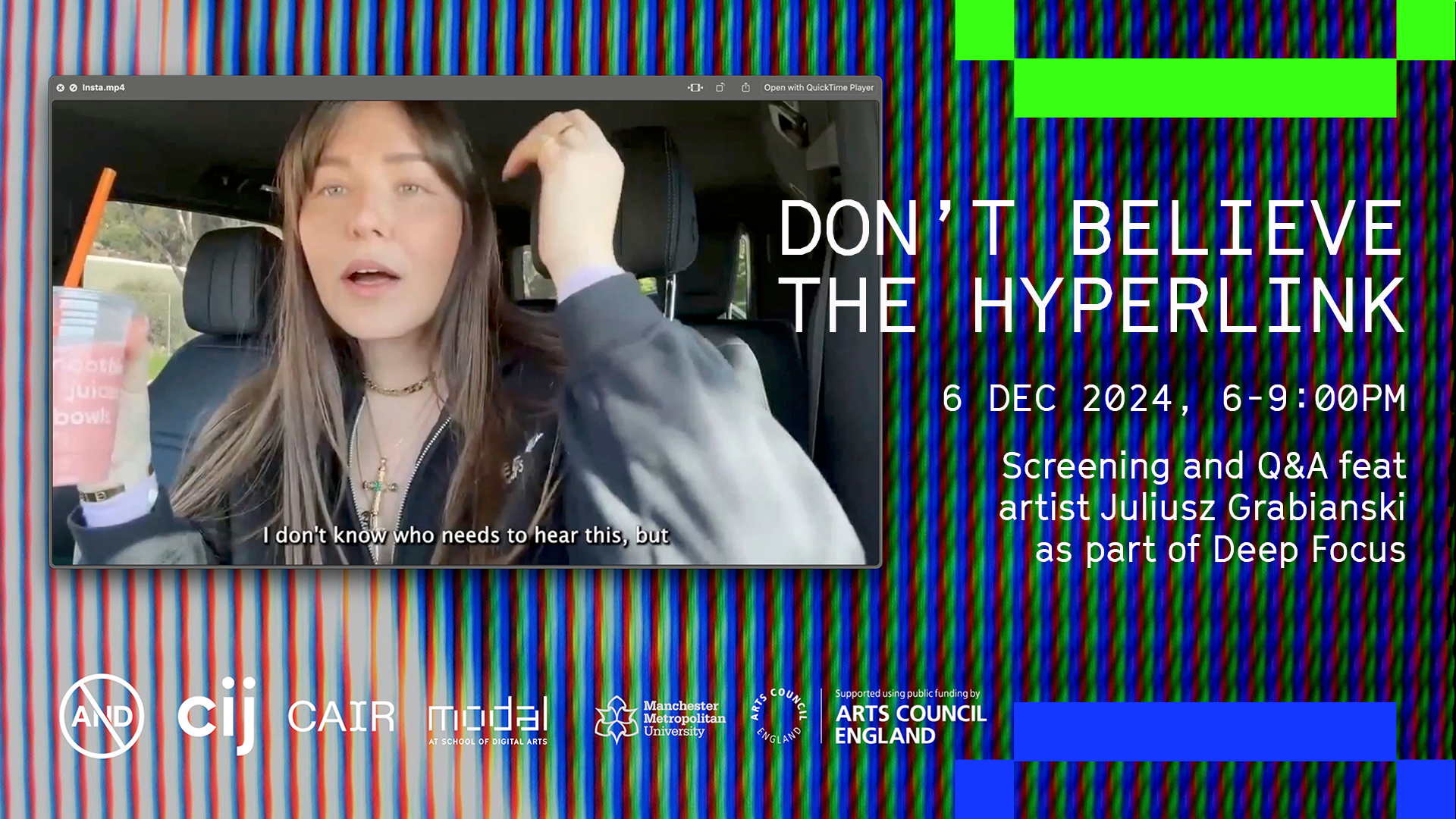
From the playful and satirical to the critical and unsettling, these films will dissect and paint a portrait of a world where the boundaries between the real and the fabricated become increasingly porous, pushing us further into a post-post-post-truth era.
This screening will also be followed by a Q&A featuring artist Juliusz Grabianski.
Featured films and artists:
How to excel at everything, Marion Balac
Marion Balac (b. 1984) is a graduate of Paris 1 Panthéon Sorbonne and ENSBA Lyon working in the field of video and visual arts. Her recent work explores the links and tensions between territories, feelings, transmission and technology. Observing and using the resources offered by the Internet, she lingers on its dynamic playgrounds to bring out its incongruities, divert its uses towards poetic ends or social experiments, and elaborate new fictions, in or out of the screen.
Touching Grass, Juliusz Grabianski
Juliusz Grabianski is a visual artist based in London. His practice investigates the role of technologically mediated images in creating digital mythologies.
The Future Ahead Will Be Weird AF (The Ultimate AI CoreCore Experience) Part One (2023) and Part Two (2024), by Silvia Dal Dosso
Silvia Dal Dosso is a creative and film director and a researcher in digital technologies and web subcultures. In 2016 she co-founded Clusterduck, an art collective working in the fields of research, design and transmedia. With Clusterduck she co-created collective exhibitions and interactive installations such as #MEMEPROPAGANDA, Meme Manifesto, The Detective Wall, and publications such as “The Detective Wall Guide” (Aksioma, 2021). She regularly writes about art, technology and how to survive it, on Domus, Not, INC Longform, and others.
MICCHAN, Noura Tafeche & Tobia Paolo Bettoni
Noura Tafeche is a visual artist, independent researcher and onomaturge. She graduated in New Technologies for Art from the Brera Academy, with a particular focus on the field of net.art and radical entertainment. Her artistic journey unfolds through laboratory methods and practices, video, installation, onomaturgy and miniature drawing. Her research areas delve into the study of phenomena related to online visual cultures, the aestheticization of violence on digital platforms, linguistic experimentation and the visual representation of speculative imaginary.
Tobia Paolo Bettoni is a university student pursuing a degree in political science at Università degli Studi di Milano. His subject of research is the political use of otaku aesthetic, with a keen focus on the «political bishoujo».
IFSR (I feel so relaxed) (2019), George Jasper Stone & Suzannah Pettigrew
George Jasper Stone is a digital artist based in Bristol, UK. Their art practice is often collaboratively based, working with musicians, live performance, contemporary dance, photography and installation. They propose alternative virtual spaces which often call on participation into worlds that interlink fantasy and reality. Their work is often characterised by constructing digital scenes which transcode data from physical environments to digital experiences. They aim to create a dialogue to accessible, detailed and fantastical semiotics.
Suzannah Pettigrew is an artist living and working in London. Pettigrew’s practice explores digital tactics of power play and the evolution of participation in a post-human society, examining the implications of digital culture and technological advancements on the individual and collective psyche. She intertwines photography, text, sculpture, sound, video and performance with world building ideas and language. Pettigrew expands her intrapersonal and interpersonal relationships to communicate the emotional duality experienced in exchanges between the digital and physical. She emulates our encounters with screens and the spaces within screens by splicing imagery, rituals, and observations. Pettigrew presents multimedia excerpts through an evocative decoding of our shared realities back to the audience.

